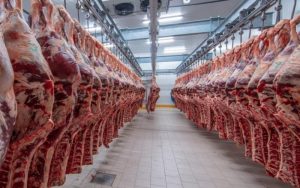26 April 2012 – Global Post
Indonesia has become the first country to suspend US beef imports, following the discovery in California this week of a dairy cow infected with mad cow disease.
Indonesia has become the first country to suspend US beef imports, following the discovery in California this week of a dairy cow infected with mad cow disease.
According to Agence France-Presse, imports of boned US meat and innards would be banned, however the import of boneless meat remained unaffected.
“We will lift the ban as soon as the U.S. can assure us its dairy cows are free of mad cow disease,” the Associated Press quotedIndonesia’s Vice Agriculture Minister Rusman Heriawan as saying.
“It could be one month or one year. It depends on how long it takes to resolve this case.”
US Health authorities have said the diseased animal was never a threat to the nation’s food supply, in the first case of mad cow disease in the US since 2006.
Major buyers of US beef have said they will continue with American beef imports, meaning Indonesia’s partial ban will have little impact, according to Reuters.
There were no immediate signs that some of the biggest consumers, South Korea and Japan, would follow suit.
The EU has said that it has no plans to impose restrictions on imports of US beef products, according to AFP.
In 2011, the United States exported nearly 18,000 tones of beef products to Indonesia, valued at $28.2 million, according to AFP, citing figures from the US Meat Export Federation.
Indonesia imports most of its meat from Australia and New Zealand.
The US trade representative Ron Kirk said Thursday that there was “no reason to fear” that a Californian mad cow case had tainted food markets.
“There’s been no evidence (in) this one reported instance that any contaminated product has entered our food chain or any international food chain,” Kirk said.
“There is no reason, from my understanding of the analysis… for any consumer to be concerned about the consumption of US beef.
“Thus we would expect that Indonesia would quickly reopen its market for its consumers for US beef products.”



